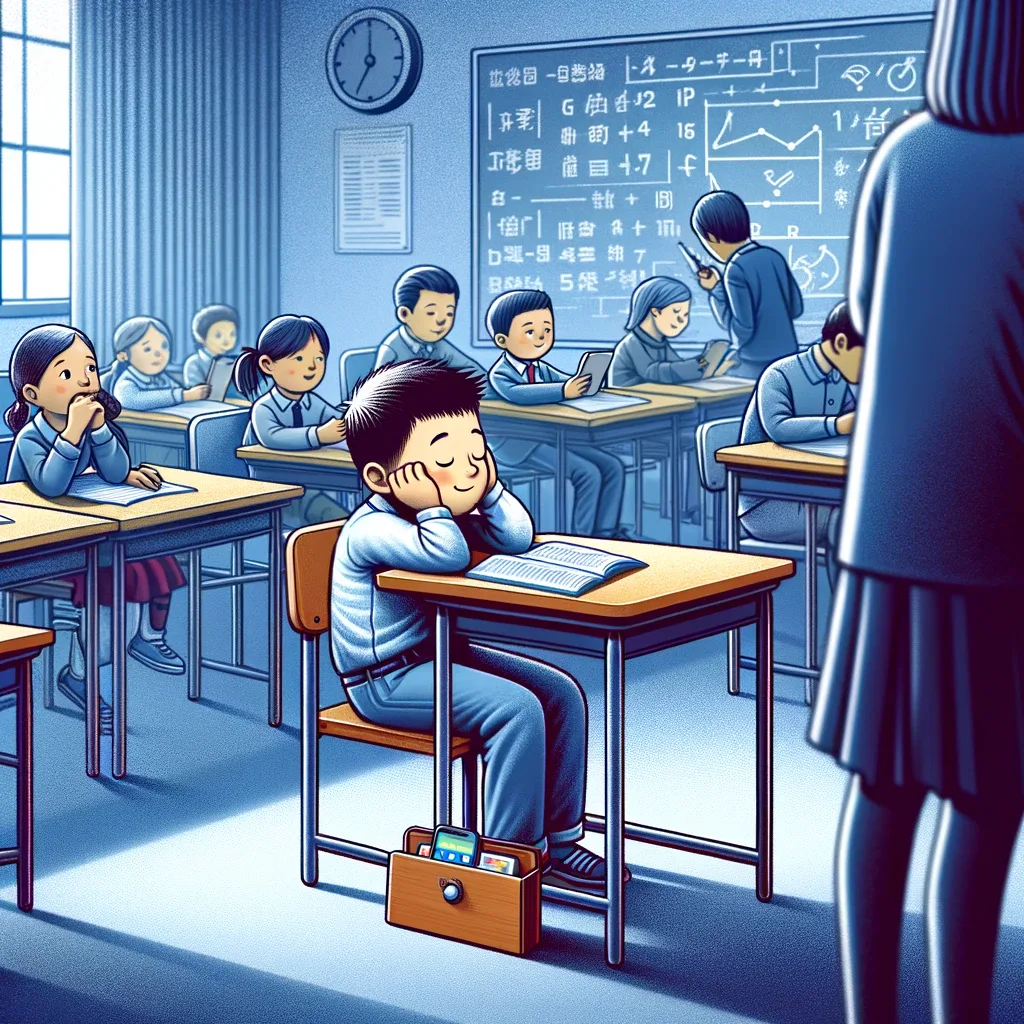Addressing behavioral problems in children, especially within the school environment, is a nuanced challenge that requires a careful, compassionate approach. This article seeks to guide parents through understanding the root causes of such behaviors, offering practical advice and strategies to support their children effectively. Let’s explore the multifaceted origins of behavioral issues and navigate through actionable steps parents can take.
1. The Possible Causes of This Behavior.
Understanding the underlying reasons for a child’s behavior problems is the first step toward addressing them. These causes can be broadly categorized into issues at school or online influences.

At School.
Behavioral problems can often be a response to the school environment itself. This may include difficulties with peers, such as bullying or social exclusion, challenges in academic performance or learning disabilities, and possibly a lack of engagement with the curriculum or teaching style. Identifying the specific school-related triggers is essential for addressing the root of the problem.

Online Hypotheses.
The digital realm significantly influences children’s behavior. Excessive screen time, exposure to inappropriate content, and cyberbullying can all contribute to behavioral issues. The impersonal nature of online interactions can also distort social norms and expectations, affecting how children behave both online and offline.
2. What Can I Do as a Parent.
Once the potential causes have been identified, parents can take several steps to help their child manage and overcome behavior problems.

Give Him Some Time.
Children often need time to open up about their feelings and experiences. Offering your child patience and a listening ear without immediate judgment or consequences can encourage them to share more freely. This open line of communication is vital for understanding and addressing the root causes of their behavior.

Be Empathetic.
Empathy is key to connecting with your child and helping them navigate their feelings and behaviors. Try to see the world from their perspective and validate their emotions, even if you don’t fully understand or agree with their actions. This validation can help build trust and openness.
 Suggest New Activities.
Suggest New Activities.
Introducing new activities can provide an outlet for stress and frustration that might be contributing to behavioral issues. These activities can also offer opportunities for positive social interactions, skill development, and self-esteem building. Choose activities based on your child’s interests and strengths to ensure they feel motivated and engaged.
 Help your child learn.
Help your child learn.
Educational support plays a crucial role in addressing behavior problems, especially if these issues stem from academic challenges. This might involve working with teachers to tailor learning experiences to your child’s needs, seeking tutoring, or exploring alternative educational resources. Fostering a love for learning and a sense of achievement can significantly impact a child’s behavior and self-image.
Conclusion
In conclusion, addressing a child’s behavior problems at school requires a comprehensive understanding of the underlying causes and a proactive, empathetic approach from parents. By offering support, understanding, and appropriate interventions, parents can help their children overcome these challenges, fostering a positive school experience and promoting healthy development.
Sharing screen time between educational and recreational content will reduce arguments and increase knowledge and self-esteem, while limiting access to content that can be dangerous or confusing. Mr Arthur can help you take care of your child’s well-being.

Other important questions to ask yourself:
(These links provide information, not a diagnosis. If your concern persists, consult a doctor for your child)
How to help a child struggling with anxiety ?
How to prevent cyberbullying ?

 Suggest New Activities.
Suggest New Activities.  Help your child learn.
Help your child learn.